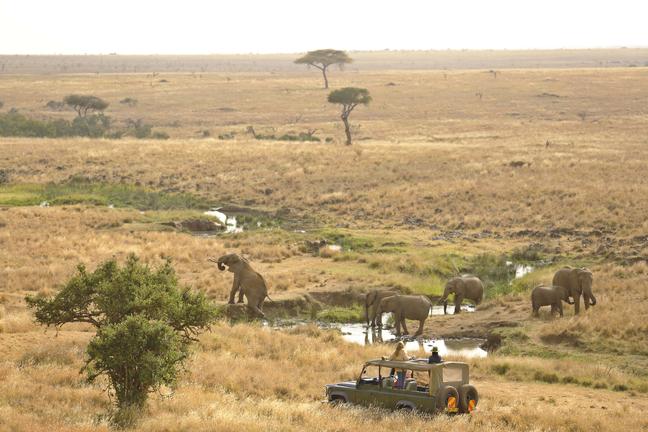Safari means journey in Kiswahili, the language of East Africa, and Kenya is the home of safari. Its varied ecosystems and landscapes mean that the biodiversity here is higher than any other country in Africa. It has been the natural home of celebrity safaris, big game hunters and royalty since the 18th century and remains the most spectacular safari destination with unparalleled wildlife viewing.
A complete safari includes at least three of the main ecosystems: the semiarid dramatic landscapes of the north, the tropical woodlands of the Rift Valley and the lush savannahs of the Masai Mara. We recommend booking three nights in each area in order to give your guests the best possible safari.
Kenya has a culture borne of countless sources. From the prehistoric records of early man to the present day, Kenya has been a land of unending change, contrasts, and diversity. The country has at least 40 different ethnic African groups (including the Kikuyu, Luhya, Kalenjin tribes, Luo, Kamba, Kisii, Meru and Embu, Mijikenda, Swahili, Turkana and Masai) who speak a variety of indigenous languages. Waves of migration over the centuries from the north and south of the continent have led to Kenya becoming one of the most diverse African countries culturally and linguistically.
Kenya has a well-established system of guide training and certification. It is important that a safari is guided by competent and experienced guides as it is through their eyes that guests will interpret the wilderness around them! Many of the properties, have in house guides, usually from the local area, that know their part of the wilderness and its inhabitants.
Kenya offers many superb private conservancies and unique boutique safari camps and lodges. Some areas suit low-key tented camps and others large open airy rooms with stunning views.



Supporting the second highest density of wildlife in Kenya, the vast 9,500 square kilometres Laikipia plateau stretches from the slopes of Mount Kenya in the south east to the edge of the Great Rift Valley in the west.
The Lewa Wildlife Conservancy lies at the heart of Laikipia. The Conservancy is an international model for the conservation of wildlife through modern and sustainable methods, that include the traditions of the people living in the area. For the peoples living on the boundaries of the conservancy, Lewa has offered improved livelihoods through the provision of education, micro-credit programmes, community-managed water projects and access to health services.
Set in Northern Laikipia in Kenya, East Africa, Loisaba Conservancy stretches over 20 000 hectares of magnificent African landscape. The terrain is traversed by two permanent rivers and abundant springs which make it a perfect habitat to sustain a myriad of wildlife. It is known as a world-class ecotourism destination offering a variety of unique opportunities for visitors looking to immerse themselves in nature. Spot majestic elephants journeying along the elephant migration corridor, stay overnight in a tented camp under the stars, soak up the incredible views and enjoy a thrilling game safari. Other popular activities include camel-trekking, mountain biking, horse-riding, fishing, guided bush walks, and cultural visits to Samburu villages.









The vast open grasslands of the Masai Mara are famous throughout the world as the host of the annual migration, when 1.3 million wildebeest and zebra cross from the Serengeti to the Masai Mara in search of greener pastures from June to October.
With high densities of both resident and transient populations of game including lion, cheetah, leopard, elephant, rhino, giraffe, hyena and over 450 species of bird, the Masai Mara provides unrivaled game viewing throughout the year.
The 1510 square kilometres Masai Mara National Reserve bordering Tanzania’s Serengeti National Park is surrounded by approximately a dozen conservation areas. These conservancies have been established as partnerships between the private sector and local Maasai pastoralist landowners to ensure the conservation of the Great Mara-Serengeti ecosystem and the protection of the wildlife within it.
Cheli & Peacock Safaris were fundamental in founding the 70,000 acre Mara North Conservancy (MNC), one of the largest community and private sector owned conservancies in the world. Regarded as one of Kenya’s most successful conservation models, MNC is an exclusive safari destination in a prime wildlife area, open only to the guests of the 12 member camps within it.




